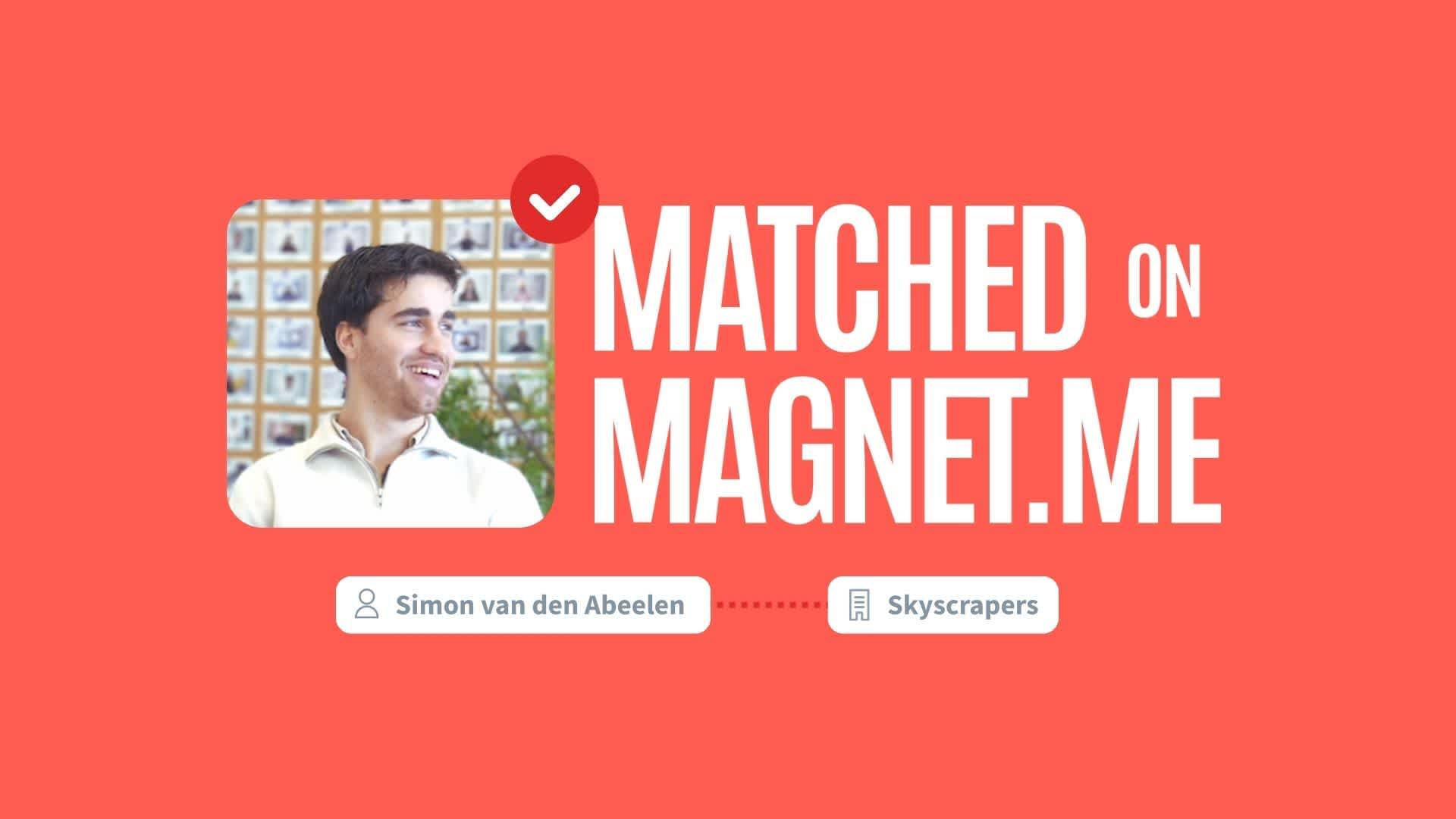
Big 4 Recruiter: “Convince them you're it”
Reading time: 8 minutes
You did the work, now you want the job too. Although your degree is in the pocket, it doesn’t come with instructions on how to land the job that will truly kickstart your career. From understanding what’s out there, to applying and eventually picking the right company. They’re all essential steps in the process of entering and being part of the very competitive job market you aim to conquer.
We talked to Donja Huidar, a tech recruiter with 10+ years of experience working for companies like Deloitte, Accenture and eBay. Whether you aspire to become a consultant or have a different career path in mind, her advice will help you find the job and employer that is right for you.
What’s out there?
You might be familiar with typical industry-related jobs and have heard of popular companies to work for. However, to truly get an understanding of what’s out there, you need to do some research. Don’t only focus on discovering the wide variety of job functions that exist, also make sure you understand different types of companies (and their cultures). After all, it’s a combination of your daily tasks and the environment you work in that determine whether a job is a good fit for you.
These are three things you can do to get a good understanding of an employer:
Use your own network
Your own network can help you throughout the entire job searching process. They’re key in helping you discover- and learn about companies. Got your eye on a specific organisation? Ask your network what it’s like to work there, and even if they can set up an introductory meeting.
Go to in-house days
In-house days might seem daunting at first, but if you’re a student or graduate they’re actually a great way to get introduced to a company without the pressure of an actual interview. Companies organise these days to introduce you to their culture, mission and some employees. However, it’s also a clever way for them to see you interact with your peers and potential future colleagues. Make sure to show your communication skills by asking relevant questions and starting conversations with the people around you. This is your chance to learn more about what the company can offer you whilst showing them who you are.
Use Magnet.me
Whether you’re still exploring what’s out there or want to specifically search for certain jobs (e.g. engineer at a company in Amsterdam with 50+ employees), Magnet.me matches relevant jobs to your profile and provides it to you in a clear overview. You can search for traineeships and jobs and learn more about companies. Just browse through the office photos on the company pages and get a first good impression of the work environment. And if you have any questions, you can contact them directly through Magnet.me.”
Convince them you’re it
After carefully selecting companies and jobs that sparked your interest, it’s time to start the application process. You want to make sure that you apply to jobs that actually match your profile.
What does this mean? Don’t spend time on polishing CVs and writing motivation letters for a job you’re unlikely to be selected for. After studying the job description you should:
Bridge the gap between your profile and what the company is looking for
Nobody is a 100% match with the job requirements companies create. However, to be considered for the job, you must have an affinity with the position. If the job requires you to travel twice a month and you aren’t willing to do this, chances are low that this is the right fit for you. Are you not sure whether applying to a job is worth your (or the company’s) time? Pick up the phone and ask them to explain a bit more about the position. For some, 2-3 years of experience is required because it indicates sufficient project management skills, for others, it’s necessary because you need the hard skills that can only be acquired after years of doing the actual job.
Strategically convey both your hard and soft skills
The importance of hard versus soft skills often depends on the industry you aim to work in. However, recruiters tend to make their first selection (who out of all applicants gets invited for an introductory interview) based on your academic background and work experience. This is why you should demonstrate your hard skills on your CV in a concise way. Recruiters only need a quick glance to make up their minds. Once invited, it’s time to show your soft skills. The way you present yourself and communicate with the people you meet during your interview are direct indicators of your abilities as a member of your potential future team.
Make sure the company is it too
Finding a job you love also means finding a company you love. Aside from spending time proving to an employer they should hire you, you should also be convinced to choose an employer. After all, if you start a job that makes you unhappy, you’re very unlikely to succeed or last very long. That’s why picking the right company is essential to your entire career.
Finding the right employer to work for starts before you even apply. Here are two things that can help you with that:
Write down what you like and what you don’t
Company profiles convey a lot of information about the company culture. Write down what you like and what you don’t to help you decide what you find important. Next is talking to the people that already work there. Whether it’s during an introductory coffee meeting or an actual interview, pay attention to how well you get along with them. Just like in your personal life, certain crowds will suit you better than others. These are also the best people to ask about topics like team building events, flexibility to do sports/hobbies, etc.
Check what you will actually be doing Then, you want to look at more specific details. Even though the general role you’re applying to might be appealing, make sure that your daily tasks are things you truly are happy doing. Ask the employer questions about how diverse the role is, what possibilities there are to grow, whether it includes interaction with other departments, etc. After the first months of employment, these are things that will affect how much you love your job.
Landing a job you love, maybe even for the first time ever, is a lot easier when you know where to start and what steps to take. Whether you have your career path mapped out or are still discovering what’s out there, the key to job hunting success is finding that match between you and a company. With research and preparation, a carefully crafted CV and a clear vision of what type of company you want to work for, you will already get far. Just remember that companies want you as much as you want them.






